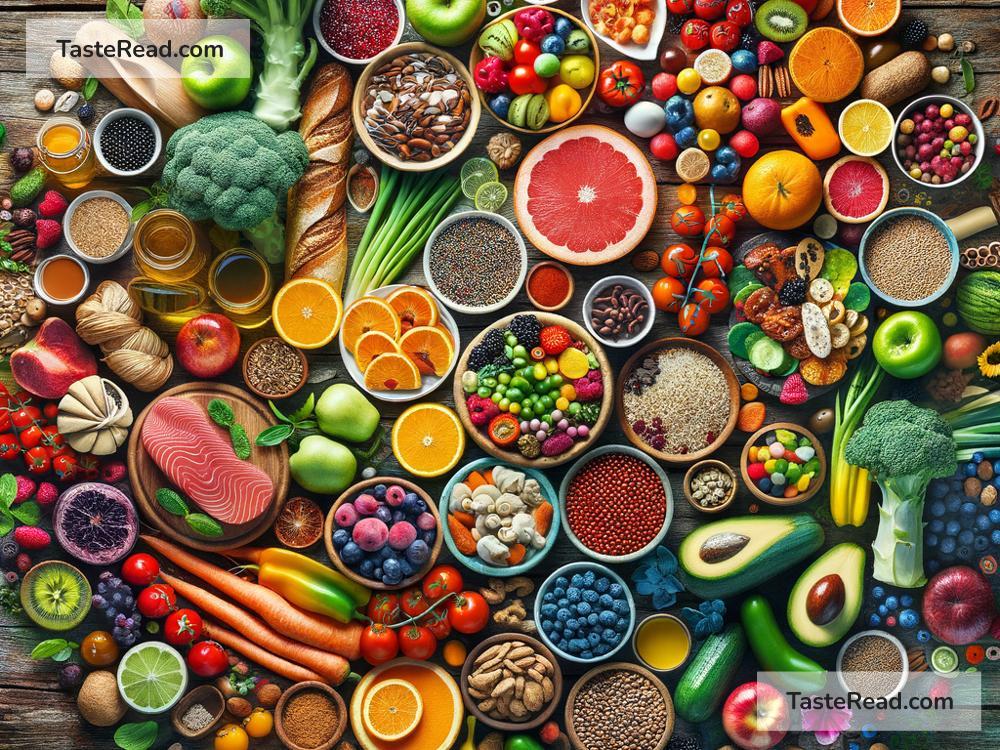The Impact of Food Choices on Nutrition
Food plays a big role in our lives. It gives us the energy to work, play, and stay healthy. But did you know that the choices we make about what to eat can have a huge effect on our nutrition and overall health? In this article, we’ll explore how food choices impact our body, why a balanced diet is important, and some simple tips for making better decisions about what we eat.
What is Nutrition?
First, let’s break down what nutrition means. Nutrition is the process of taking in food and using it to keep your body healthy and strong. Food contains nutrients like vitamins, minerals, proteins, carbohydrates, fats, and water. These nutrients are essential—they help your body grow, repair itself, and function properly.
Good nutrition boosts your immune system, keeps your heart healthy, and helps your brain work better. On the other hand, poor nutrition can lead to problems like weight gain, fatigue, nutrient deficiencies, and diseases such as diabetes or heart conditions.
Food Choices Shape Your Health
Your food choices directly affect the quality of your nutrition. Some foods are packed with essential nutrients, while others may be high in calories but very low in nutrients. Here’s the difference between nutrient-dense foods and “empty-calorie” foods:
-
Nutrient-Dense Foods: These are foods full of vitamins, minerals, and other nutrients that your body needs, without being overloaded in calories. Examples include fruits, vegetables, whole grains, lean proteins (like chicken or fish), nuts, and seeds.
-
Empty-Calorie Foods: These are foods that don’t provide much nutrition but are high in calories. They often contain sugar, unhealthy fats, and salt. Examples include sugary drinks, chips, candy, and fast food.
The more nutrient-dense foods you eat, the better your nutrition will be. Eating mostly empty-calorie foods, on the other hand, can lead to weight gain, low energy levels, and health issues in the long term.
Why a Balanced Diet Matters
Eating a balanced diet is one of the best ways to stay healthy. But what does “balanced diet” mean? It means eating a variety of foods that provide all the nutrients your body needs in the right proportions. Here’s a simple guide:
-
Carbohydrates: These are your main source of energy. Choose whole grains like brown rice, whole wheat bread, and oats instead of processed carbs like white bread or sugary cereals.
-
Proteins: Protein helps with growth and repairs tissues in your body. Choose lean meat, fish, eggs, beans, tofu, and nuts.
-
Fats: Your body needs healthy fats to absorb vitamins. Focus on unsaturated fats found in foods like avocado, olive oil, and nuts, while avoiding trans fats found in fried foods and many baked goods.
-
Vitamins and Minerals: Fruits and vegetables are excellent sources of vitamins and minerals that keep your organs functioning smoothly and protect you from illnesses.
-
Water: Staying hydrated is also critical for good nutrition. Drink plenty of water instead of sugary drinks.
When your diet is balanced, your body gets everything it needs to stay strong and healthy.
The Role of Unhealthy Eating Habits
Unfortunately, many people fall into unhealthy eating habits without realizing it. For example:
- Eating fast food because it’s convenient, even though it may be high in fat, salt, and sugar.
- Consuming sugary drinks like sodas or energy drinks rather than water.
- Snacking on chips or cookies instead of fruits or nuts.
- Skipping meals, which can lead to overeating later.
These habits can lead to health problems over time, such as obesity, high blood pressure, diabetes, or even heart disease. That’s why it’s so important to make conscious choices about what you eat.
Simple Tips for Better Food Choices
Improving your food choices doesn’t have to be hard! Small changes can make a big difference. Here are some tips to help you make healthier decisions:
-
Plan Your Meals: Take a few minutes to think about what you’ll eat throughout the day. Planning helps you avoid last-minute unhealthy choices.
-
Add More Fruits and Vegetables: Try to include fruits and vegetables with every meal. They’re packed with nutrients and low in calories.
-
Avoid Sugary and Processed Foods: Limit foods that are high in sugar or heavily processed. Choose fresh, whole foods whenever you can.
-
Read Labels: Check food labels to understand what’s inside. Look for lower amounts of sugar, salt, and unhealthy fats.
-
Cook at Home: Preparing meals at home gives you control over what goes into your food. You can use healthy ingredients and cut down on excess fat or sugar.
-
Eat Mindfully: Pay attention to what you’re eating and enjoy your meal without rushing. This can help you avoid overeating.
-
Stay Hydrated: Drink water throughout the day instead of sugary drinks. Hydration is key to feeling your best.
Conclusion
Your food choices have a major impact on your nutrition and overall health. By choosing nutrient-dense foods, eating a balanced diet, and avoiding unhealthy habits, you can feel energized, stay healthy, and protect yourself from future health problems. Remember, small changes can lead to big results over time. So next time you’re thinking about what to eat, make a choice that’s good for your body—you’ll thank yourself later!


